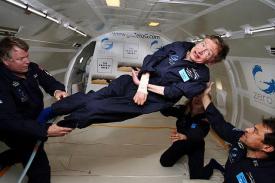Big Data and the IoT are quickly transforming the world of clinical research, including how trial sponsors find and retain patients. While the digital revolution has permeated the medical world more slowly than other industries, it’s finally begun to make a real impact. PwC research found that while the healthcare industry has a relatively low “Digital IQ” score of 65%, it boasts more CEOs that actively champion digital than any other industry. For clinical trials, that advocacy is translating into the implementation of big data and the Internet of Things (IoT), which are transforming not only how research is conducted, but the strategies used to identify, attract, and retain qualified patients. As methods of data collection and analysis become more sophisticated, clinical trial sponsors stand to make unprecedented progress in patient recruitment and retention.
Gaining Perspective on Big Impact
The IoT is the web of digitally-connected physical objects — wearables, medical devices, smartphones, buildings, and even cars — that collect and share data. In the healthcare industry, this market is poised to grow to $136 billion by 2020, according to Research and Markets. Big Data, on the other hand, is the process of collating and analyzing the vast troves of data generated by the IoT, along with other sources, such as social media and the web. For clinical research, IoT and big data are a match made in digital heaven. According to McKinsey, such technologies enable real-time clinical trial monitoring and facilitate data-sharing between research groups, R&D, physicians, and CROs. Using analytic feedback from web-connected medical devices and aggregated clinical results, researchers can create shorter, more effective trials, with results that are useful to a wide range of operators. According to Pharma Life Sciences, this development could reduce readmissions and even unnecessary in-person visits. For example, wearable devices allow patients to participate in clinical trials remotely rather than travelling long distances to trial locations. Gadgets like smart skin patches, reports the Verge, will soon be able to automatically deliver medicine to patients and send biological information to researchers. Digital devices can also solicit detailed patient feedback, allowing researchers to optimize future trials from the patient’s perspective. PharmaVoice notes that, already, major life-science companies like Calico (a Google company), Novartis, Roche, and UCB are teaming up for big data and IoT partnerships.
Finding More Qualified Candidates, Faster
Big Data analytics also enables clinical trial recruiters to target patients much more accurately and specifically, drawing from a vast reservoir of sources, notably among them: online behavioral profiles. With such detailed patient information, researchers can also pre-establish nuanced enrollment criteria and set up automated screening processes, dramatically improving the speed and efficiency of enrollment drives. The switch to big data-enabled recruitment is probably going to happen relatively soon, as more patients now find out about clinical trials on the internet than from any other media source. In fact, patient recruitment groups are already integrating advanced analytics with strategies like search engine marketing (SEM) and paid social media advertising. Platforms like Google Adwords and Facebook feature advanced targeting options, enabling recruiters to filter their marketing efforts by demographic, location, age, interests, and online behavior. As the IoT collects more and more patient data and digital analytics technologies continue to improve, the value of e-recruitment’s is only going to increase — which is a compelling case for investment, as digital advertising has already established itself as the most cost- and time-efficient approach to trial recruitment. For an industry that has long struggled to keep up with tech trends, this is an exciting opportunity to streamline process, eliminating inefficiencies and getting better products to market, sooner.







-330x220.jpg)

